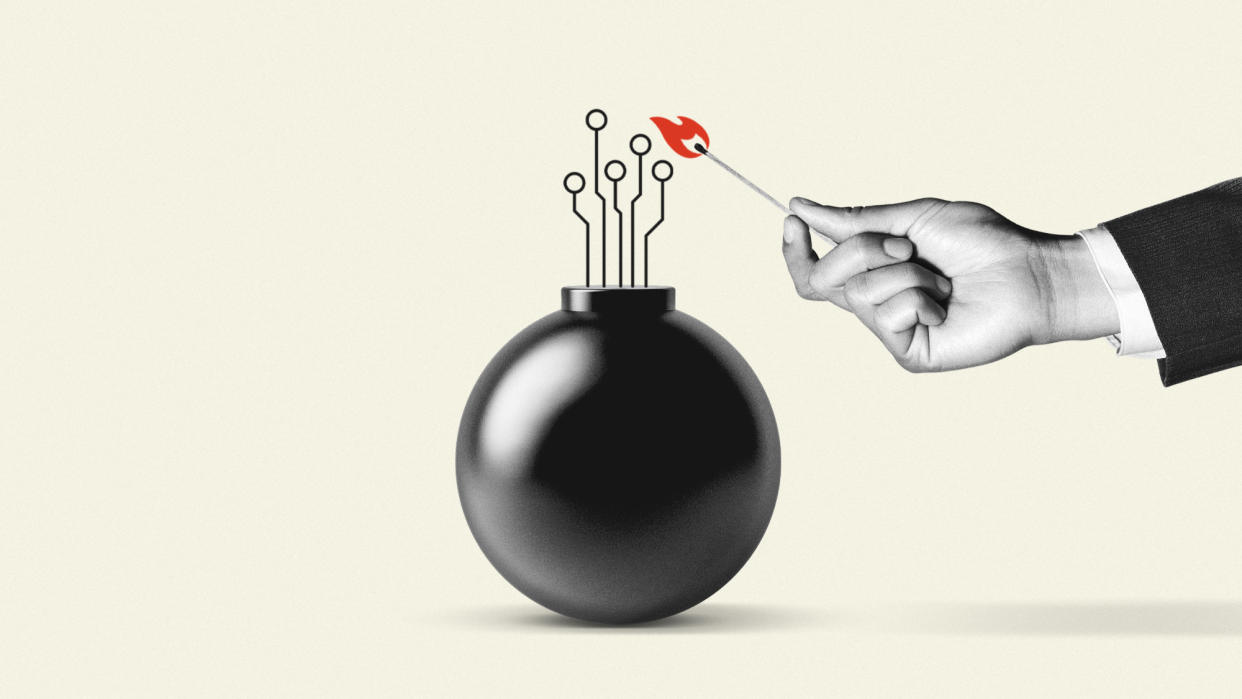The AI Safety Summit: UK's bid to help world avoid apocalypse

The UK is preparing to host the world's first international artificial intelligence safety summit.
Industry news site Verdict said the "landmark" summit, bringing together tech leaders, business experts and politicians, follows concern from the UK government AI "could threaten global stability and undermine our values".
The topics to be discussed range from threats to elections to AI's impact on online safety and its role in equality. But the focus will predominantly be on national security including the risk of terrorist groups using generative AI tools to create new weapons.
"This is really about safety," a British official, speaking on the condition of anonymity, told Politico.
Why the UK?
The two-day summit begins on 1 November at Bletchley Park, the Buckinghamshire country house which was once the top-secret headquarters of Second World War codebreakers.
In what the BBC described as a big "political win" for Downing Street, the summit was announced during a trip to the US by the Prime Minister Rishi Sunak in June.
The UK has made claims to being a "significant actor in AI, and in global governance and regulation" wrote Olivia O'Sullivan, Chatham House's Director of UK in the World Programme. The summit is "an opportunity to make the case that its AI industry – even if not close to the size of the United States' or China's – is substantial enough to make Britain an influential force in global debates about how the technology should develop and be governed".
If the UK can help bring together global powers to manage the risks AI poses, it "can also claim to be playing a burden-sharing role on international problems of the type it has played in the past", she added.
Who is attending?
The summit will bring together around 100 high-level participants including "leading politicians as well as independent experts and senior execs from the tech giants, who are mainly US based", said the BBC. Leading academics will also be invited.
While the list of participants has yet to be released, Bloomberg reported that OpenAI CEO, Sam Altman, and Microsoft CEO, Satya Nadella, will attend along with US Vice-President Kamala Harris, while a representative of the Chinese government has also been invited. Their attendance is seen as crucial to the legitimacy of the summit even if some experts and Conservative MPs have security concerns around China's involvement.
One leader expected to snub the summit, however, is German Chancellor Olaf Scholz, which could spark concerns of a "domino effect" with other world leaders, such as the French President Emmanuel Macron, also unconfirmed, the BBC reported.
The broadcaster said it is thought Berlin wishes to "avoid any messy overlap with G7 efforts, after the group of leading democratic countries agreed to create an international code of conduct". However, European Commission President Ursula von der Leyen is expected to attend even though the EU is aiming to finalise its own landmark AI act by the end of the year.
What do they hope to achieve?
At a domestic level, the UK is currently planning to fold AI regulation into existing regulatory bodies, but Politico has revealed Sunak will use the AI summit to gather "like-minded countries" and executives from the leading AI companies to set out a roadmap for an AI Safety Institute.
This international body would "assist governments in evaluating national security risks associated with frontier models, which are the most advanced forms of the technology", said the news site.
The UK may be hoping to act a broker between the US, China and EU, but its global governance efforts will face the "significant challenge of bringing both non-state actors such as private companies on board, and non-allied states – particularly China – with few incentives to be transparent about the development of their AI systems", said O'Sullivan.
Positioning the UK as a key player and the face of global AI regulation also carries significant risks for the prime minister.
"Team Sunak hopes the AI summit is received as a heroic effort to protect the public," wrote Andrew Orlowski in The Telegraph. "But it may have the opposite effect."
"The biggest threat that technology companies fear is being held responsible for the consequences of their work," he said, and the summit may be viewed as an "attempt to prevent digital polluters from feeling the consequences of their actions".
"That's something the public, which must deal with the poisoned digital realm, is unlikely to forgive."

